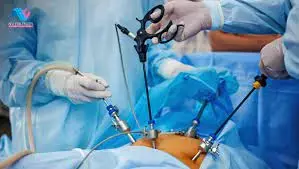- Home
- Medical news & Guidelines
- Anesthesiology
- Cardiology and CTVS
- Critical Care
- Dentistry
- Dermatology
- Diabetes and Endocrinology
- ENT
- Gastroenterology
- Medicine
- Nephrology
- Neurology
- Obstretics-Gynaecology
- Oncology
- Ophthalmology
- Orthopaedics
- Pediatrics-Neonatology
- Psychiatry
- Pulmonology
- Radiology
- Surgery
- Urology
- Laboratory Medicine
- Diet
- Nursing
- Paramedical
- Physiotherapy
- Health news
- Fact Check
- Bone Health Fact Check
- Brain Health Fact Check
- Cancer Related Fact Check
- Child Care Fact Check
- Dental and oral health fact check
- Diabetes and metabolic health fact check
- Diet and Nutrition Fact Check
- Eye and ENT Care Fact Check
- Fitness fact check
- Gut health fact check
- Heart health fact check
- Kidney health fact check
- Medical education fact check
- Men's health fact check
- Respiratory fact check
- Skin and hair care fact check
- Vaccine and Immunization fact check
- Women's health fact check
- AYUSH
- State News
- Andaman and Nicobar Islands
- Andhra Pradesh
- Arunachal Pradesh
- Assam
- Bihar
- Chandigarh
- Chattisgarh
- Dadra and Nagar Haveli
- Daman and Diu
- Delhi
- Goa
- Gujarat
- Haryana
- Himachal Pradesh
- Jammu & Kashmir
- Jharkhand
- Karnataka
- Kerala
- Ladakh
- Lakshadweep
- Madhya Pradesh
- Maharashtra
- Manipur
- Meghalaya
- Mizoram
- Nagaland
- Odisha
- Puducherry
- Punjab
- Rajasthan
- Sikkim
- Tamil Nadu
- Telangana
- Tripura
- Uttar Pradesh
- Uttrakhand
- West Bengal
- Medical Education
- Industry
Intraoperative Indocyanine green testing may identify leak during laparoscopic sleeve gastrectomy

Intraoperative Indocyanine green testing may be helpful in determining which patients are at an increased risk for leakage suggests a recent study published in the BMC Surgery.
Indocyanine green (ICG) when injected intravenously into the bloodstream allows us to show stomach vascularity in real-time. The aim of our study was to observe the preliminary results of the application of indocyanine green fluorescence (IGF) during laparoscopic sleeve gastrectomy (LSG) in our centre and how the perfusion of the staple line of the stomach affects the onset of the fistula.
Obesity is a rising global epidemic that places significant strain on health care services worldwide. Bariatric surgery has become the most effective way to achieve significant weight loss and improve the associated comorbidities of obesity. Obesity is more prevalent in industrialized countries, and its incidence is continually rising.
The pathogenesis of gastric leakage has still not been clarified, even though a multifactorial aetiology (ischaemic, mechanical, inflammatory) has been considered [3,4,5]. Although there are various methods of detecting intraoperative leaks, no standardized algorithm for the intraoperative diagnosis of the gastric leak is available
82 patients underwent LSG with ICG fluorescence angiography at our centre from January 2020 to December 2021. 5 ml of ICG was injected intravenously to identify the blood supply of the stomach, carefully assessing the angle of His.
The Results of the study are:
In the ICG-tested LSG, we recorded adequate perfusion in all patients but one: the leakage rate was 1.2%. This data is inferior to the non-tested patients' group.
Thus, intraoperative ICG testing may be helpful in determining which patients are at an increased risk for leakage but there are multiple factors that contribute to the pathophysiology and the incidence of gastric fistula not only the perfusion.
Reference:
Pavone, G., Fersini, A., Pacilli, M. et al. Can indocyanine green during laparoscopic sleeve gastrectomy be considered a new intraoperative modality for leak testing? BMC Surg 22, 341 (2022). https://doi.org/10.1186/s12893-022-01796-5
Dr. Shravani Dali has completed her BDS from Pravara institute of medical sciences, loni. Following which she extensively worked in the healthcare sector for 2+ years. She has been actively involved in writing blogs in field of health and wellness. Currently she is pursuing her Masters of public health-health administration from Tata institute of social sciences. She can be contacted at editorial@medicaldialogues.in.
Dr Kamal Kant Kohli-MBBS, DTCD- a chest specialist with more than 30 years of practice and a flair for writing clinical articles, Dr Kamal Kant Kohli joined Medical Dialogues as a Chief Editor of Medical News. Besides writing articles, as an editor, he proofreads and verifies all the medical content published on Medical Dialogues including those coming from journals, studies,medical conferences,guidelines etc. Email: drkohli@medicaldialogues.in. Contact no. 011-43720751


